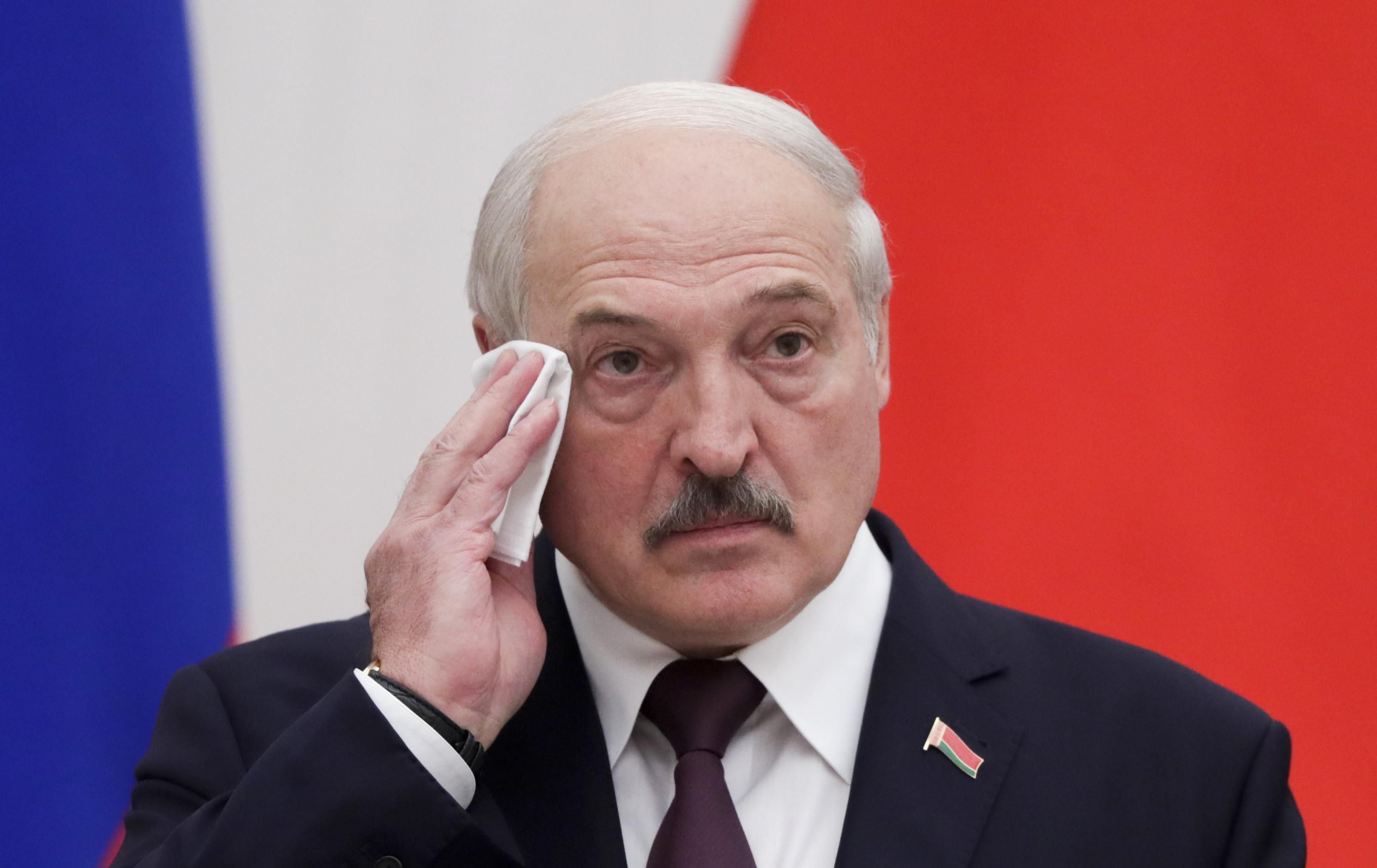Russia invaded Ukraine entirely on its own. Only a handful of authoritarian states have (diplomatically) defended Vladimir Putin’s war. One of them was Belarus, whose President Alexander Lukashenko has allowed Russian forces to attack Ukraine from Belarusian territory and passed a referendum to enable placing Russian nukes on Belarusian soil.
But Putin seems to be pushing Belarus to do more — perhaps even enter the war as a combatant, which would put Lukashenko in a very tough spot.
There’s a backstory here. Eighteen months ago, Europe’s last dictator was threatened by mass street protests over his sham re-election. When Lukashenko called Putin for help, the Russian leader obliged with economic and (some) military support.
Since then, Moscow has been a reliable wingman for Minsk throughout its tussles with the EU. Belarus was accused of hijacking an EU-bound aircraft to nab a Belarusian dissident and of creating a border crisis by pushing non-EU migrants into Poland as payback for EU sanctions.
Lukashenko owes Putin, who might soon call in the favor. But will the Belarusian president agree to fight in Ukraine?
Not if he wants to keep his job, according to Franak Viačorka, senior adviser to Belarus’ opposition leader Sviatlana Tsikhanouskaya, who claimed victory over Lukashenko in the August 2020 election. The president “understands that every step he’s making can cost him the presidency.”
Belarus entering the war could be game over for Lukashenko, whom Viačorka says is hanging on by a thread. He knows that it would be so unpopular among Belarusians that it might spark an uprising and even a coup to remove him from power.
In a poll taken before the war, a majority opposed sending Belarusian soldiers to fight against their southern neighbor, with which they share many cultural and historic ties. After the invasion, thousands defied possible arrest by taking to the streets of Minsk to protest the war.
The Belarusian diaspora has been very active in fundraising and sending humanitarian aid to Ukraine. Hundreds of Belarusians who fled the country after Lukashenko’s post-election crackdown have gone to Ukraine as volunteer foreign fighters to defend key cities like Odessa.
“Belarusians inside and outside the country protested Lukashenko’s involvement in the war,” says Tatsiana Kulakevich, a Belarus expert at the University of South Florida. “Lukashenko has jeopardized the image of the Belarusian people by providing Belarus’ territory as a stage for the Russian invasion of Ukraine.”
Moreover, she adds, Lukashenko is already considered an aggressor by the West, which has responded by sanctioning Belarus along with Russia. This pressure will continue whether or not Belarusian troops cross the Ukrainian border.
But Lukashenko is feeling the heat from Putin. Viačorka says he’s walking a tightrope between returning Putin’s favor and staying out of the war. So far, hosting unsuccessful Russia-Ukraine peace talks has neither got Moscow off his back nor placated the West and his own people.
What’s more, the two experts agree that Lukashenko is in a very fragile position. He doesn’t have as firm a grip over Belarusian media as Putin does in Russia. The Belarusian elite and the security forces are not entirely on his side. And his only leverage with Moscow is Belarus’ geography.
Lukashenko barely survived the last revolt against him, and Viačorka thinks Putin will only continue supporting him as long as the Belarusian strongman remains, for lack of a better term, strong.
Does that mean Russia might then decide to make a move on Belarus too? Probably not, says Kulakevich. Russia doesn’t need to annex Belarus because Lukashenko already offers what Putin wants: “a puppet state that he can control.”More For You
Americans are moving less — and renting more. Cooling migration and rising vacancy rates, especially across the Sunbelt, have flattened rent growth and given renters new leverage. For many lower-income households, that relief is beginning to show up in discretionary spending. Explore what's changing in US housing by subscribing to Bank of America Institute.
Most Popular
Walmart’s commitment to US-made products
What’s Good Wednesdays™, February 4, 2026
1,170: The number of high-rise buildings in Kyiv that were left without heating following a barrage of Russian attacks last night on Ukraine’s capital and its energy facilities, per Kyiv Mayor Vitali Klitschko.
Over the past five years, Haiti has endured extreme political turmoil, escalating violence, and one of the world’s worst humanitarian crises.
Microsoft unveiled a new set of commitments guiding its community‑first approach to AI infrastructure development. The strategy focuses on energy affordability, water efficiency, job creation, local investment, and AI‑driven skilling. As demand for digital infrastructure accelerates, the company is pushing a new model for responsible datacenter growth — one built on sustainability, economic mobility, and long‑term partnership with the communities that host it. The move signals how AI infrastructure is reshaping local economies and what people expect from the tech shaping their future. Read the full blog here.
